Your daily life is chaotic. Juggling leads, closings, and client calls, your valuable time is wasted on repetitive admin, not client interaction or property scouting. The modern real estate market demands speed, consistency, and a personal touch.
The operational gap between demand and limited hours caps your income and dictates stress. You've tried CRMs but still manually push data, wasting hours weekly. This administrative friction hurts your responsiveness, letting competitors with faster lead automation snag leads.
What if you could control that chaos?
The solution is strategically deployed (with the help of people like us) real estate automation, a personalized, tireless, error-proof administrative assistant.
What Is Real Estate Automation?

Real estate automation is the use of intelligent digital systems and integrated software tools to proactively handle repetitive and time-consuming workflows across the real estate lifecycle, from initial lead capture to final transaction closing and long-term client nurture.
It goes significantly beyond simple Customer Relationship Management (CRM).
While a CRM like HubSpot tracks your client data, true real estate workflow automation uses that data to act autonomously. It is proactive, taking the next steps based on predetermined rules without human intervention.
Here are concrete examples of how real estate automation works in practice:
- Automatically Assigning New Leads: A system captures a new lead from Zillow, instantly qualifies them based on their search criteria, assigns them to the correct agent in the brokerage, and sends the agent an immediate alert.
- Sending Property Alerts: The automation tracks a buyer's preferred property type and location and automatically sends them a personalized email notification the moment a new matching listing goes live on the MLS.
- Auto-Updating Listings: When you update a listing on your main brokerage site, the system automatically pushes the update (new photos, price change, status update) across your social media channels and external listing portals.
Real estate automation is not a cost; it's a force multiplier for the time and expertise you already possess.
Why Real Estate Professionals Need Automation Now
The difference between a successful, scalable real estate business and one that constantly struggles with burnout often comes down to four critical factors that real estate automation directly addresses.
Let's take a closer look:
|
Benefit |
Description |
|
Speed |
In a hot market, the first agent to respond wins the lead. Automation ensures your leads receive a personalized touch-point within seconds, not hours, giving you a massive advantage. |
|
Consistency |
Never let a lead go cold again. Automated workflows ensure every client receives follow-ups on schedule, whether it’s a drip campaign for a buyer six months out or an anniversary message for a past client. |
|
Accuracy |
Manual data entry across multiple spreadsheets and platforms is prone to errors, which can be costly in transactions. Automation ensures data integrity, especially in property management automation tasks like lease renewals or maintenance tracking. |
|
Scalability |
You can easily manage hundreds of listings and a pipeline of dozens of clients without hiring more administrative staff. Real Estate Automation allows you to grow your business without proportionally growing your operational headaches. |
It's about working smarter, not just harder, and giving you back the time to focus on what truly matters: building relationships and closing deals.
The future of real estate is automated, and adopting these solutions today puts you ahead of this evolution.
Core Areas of Real Estate Automation

Effective real estate workflow automation focuses on the highest-leverage, most time-consuming tasks in your day-to-day work. By integrating your tools across these four core areas, you create a unified operational system.
- Lead Management & Follow-Up: This is the most crucial area for lead automation for realtors. The system should capture leads from all sources (website forms, Zillow, Facebook Ads) and instantly place them into a long-term nurture sequence until they are sales-ready. Automation ensures your speed meets the lead's intent.
- Property Listing Management: This involves automating the process of creating, updating, and syncing property information. When you change a price on the MLS, automation ensures your website, social channels, and print-on-demand flyers are all updated instantly and accurately.
- Client Communication & Scheduling: Automation handles the back-and-forth of setting appointments and sending out necessary communication. It manages calendar bookings, sends secure document links, and schedules post-closing follow-ups.
- Transaction & Document Automation: This streamlines the closing process. Real estate workflow automation can track deadlines, notify all parties when a document is signed, and automatically create the required file structure for a new closing package, reducing compliance risk
It's about working smarter, not harder, and giving yourself the space to focus on what truly matters: building relationships and closing deals.
Getting Started with Real Estate Automation
Starting your journey into real estate automation doesn't require a six-figure investment or an IT department. You can take immediate, practical steps using tools you already use or that are easily accessible.
Here is an ordered, high-ROI approach to implementing realtor automation:
- Map Your Daily Tasks: Grab a piece of paper and ruthlessly list everything you do for an average transaction. Highlight any task that is repetitive, involves manual data transfer, or is a critical point of potential human error.
- Choose Your Tools: You don't need a single, massive platform. Instead, focus on a core CRM (like HubSpot or a dedicated real estate CRM like Follow Up Boss) that offers strong integration and automation capabilities. You can explore how HubSpot workflows can be the central nervous system for your entire practice.
- Integrate Systems: Your CRM needs to talk to your email, your calendar, and, if possible, your MLS. Using low-code integration tools (like Zapier or n8n) is often the simplest path to connecting these silos.
- Automate Follow-Ups First: Start with lead nurturing. Build a simple 30-day sequence for new leads that automatically sends an initial text, a follow-up email, and a reminder for you to make a personal call. This will deliver immediate and measurable results for lead automation for realtors.
- Measure ROI: Track your response rate for automated versus manual follow-ups, and the total time saved each week on admin tasks. The data will prove the value of your Real Estate Automation investment.
A key to success is focusing on high-volume, low-effort tasks first. For instance, using automated tools for automated content generation for your social media listings can save you hours every month.
Tools and Platforms That Power Realtor Automation

The best real estate workflow automation relies on the smart integration of specialized tools. You don't need to be an expert in every single one, but knowing what they do allows you to build a cohesive automation stack.
We recommend focusing on these five key areas for efficient real estate automation:
- CRM & Lead Automation: Platforms like HubSpot, LionDesk, or Ringy are essential for housing your client data and triggering follow-up sequences. Lead automation for realtors is built here.
- Listing Automation: Tools that connect to your MLS and external portals. Using API or low-code integrators (like Zapier or n8n) allows you to update listings on Zillow, Realtor.com, and your own website simultaneously, crucial for effective property management automation.
- Communication & Scheduling: Calendly simplifies appointment booking by syncing directly with your calendar. Integrating messaging tools like Twilio or WhatsApp Business can automate key client notifications securely. For the latter, partnering with the best WhatsApp solution provider will help you get the most out of this channel.
- Marketing Automation: Platforms like Mailchimp handle mass email newsletters, while integration with your CRM allows for targeted ad campaigns (Meta Ads, Google) to nurture specific segments of your database. Understanding the marketing automation ROI here is key.
- Data & SEO Tools: Using advanced techniques for AI search or real estate automation for content management can give you a massive edge in organic visibility. For instance, optimizing your digital content management for local search is far easier with the right tools.
This diverse toolkit, when connected by smart workflows, creates a truly dynamic system for realtor automation. If you are serious about using content to win listings, combining automation with a partner who understands how to be a real estate content writer is a winning strategy.
Common Mistakes to Avoid
The goal of Real Estate Automation is to simplify, not complicate.
Beware of these common pitfalls that can undermine your efforts and add more work than they save:
- Overcomplicating Workflows: It is easy to get excited and build a 20-step automation for a simple task. Start small, automate one function (like lead assignment) perfectly, and then expand.
- Ignoring Personalization: Your automation must maintain a human touch. Generic, robotic follow-ups will lose the lead. Always use merge fields and ensure automated messages sound like they came from you. Realtor automation should enhance relationships, not replace them.
- Not Syncing Tools: A disconnected CRM, email platform, and MLS system will cause data fragmentation and more problems than manual entry. The entire purpose of real estate workflow automation is to create a single source of truth.
- Neglecting Follow-Up Data: Automation is not "set it and forget it." You must continuously review which follow-up emails lead to meetings, which property alerts generate clicks, and which systems need fine-tuning.
If you avoid these mistakes and keep your focus on improving the client experience and increasing your speed, your Real Estate Automation efforts will pay continuous dividends. Effective property management automation and lead systems are about continuous improvement.
We Can Assist With Your Real Estate Automation

Want to stop leaving money on the table due to slow follow-ups and start implementing a predictable, automated workflow for your business?
Contact us to book a 30-minute strategy call with Ulf today to discuss engineering a customized lead automation system for a realtor's business that drives measurable growth and efficiency.

Chris Onyett
Chris is one of the managing partners at Roketto. His area of expertise is digital marketing and loves sharing and educating on topics like Google Ads, CPC bidding tactics, Google Analytics, and marketing automation. When Chris isn't in the office, he enjoys playing volleyball, mountain biking, and hiking with his American Eskimo.











2.png)
2.png)









